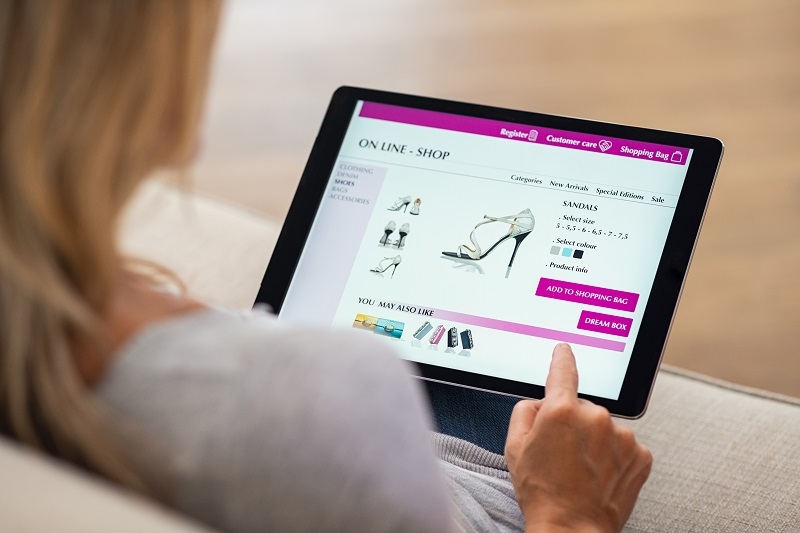Retailers adapting to new behaviours
 |
| Retailers adapting to new behaviours-illustration photo |
At the end of November, South Korea-based convenience chain GS25 announced installation of facial payment Facepay into 25 of its 80 stores, before extending the service to the whole chain. Facepay has been developed by Wee Digital, a digital identity technology startup.
The installation of Facepay is part of GS25’s strategy to scale up its presence to open about 500 more stores by 2025, increasing its competitiveness with other convenience store operators in the country.
Both the founder of Wee Digital, Christian Nguyen, and Mai Thuy Nhan, CEO of GS25 Vietnam, believe that the payment technology of Wee Digital will bring an interesting experience for customers, especially young ones who use e-wallets such as ZaloPay, VNPAY, or MoMo.
“GS25 accounts for about 15 per cent market share in convenience stores in Vietnam. If we can keep up with the demands of young people, we believe that the number of stores will accelerate,” Nhan revealed.
Also at the end of November, Visa partnered with Sacombank in Vietnam to launch Tap To Phone with Rapid Seller Onboarding (RSO), which allows businesses to transform smartphones and tablets into contactless point-of-sale terminals using a simple mobile app.
Prudential Vietnam, Dai-ichi Life, and Tiki will be the first businesses in Vietnam to roll out Tap to Phone, with RSO making it faster and easier to become Tap to Phone-approved as the sign-up process is managed entirely online.
Nguyen Minh Tam, deputy general manager of Sacombank, noted that for retail businesses with a strong customer base and sales, such as insurance, e-commerce, and for small- and medium-sized enterprises and business households, these solutions will help increase sales to both existing and potential customers.
In October, One Mount Group launched VinShop, an e-commerce platform that connects local shop owners and suppliers. VinShop helps the owners of the grocery store have the opportunity to increase their income up to VND10 million ($435) a month. The app has now directly connected suppliers with more than 20,000 grocery store owners in Hanoi and Ho Chi Minh City.
Grocery store owners can access a variety of goods, prices, and attractive incentive programmes. VinShop supports 24/7 service and super-fast delivery every day of the week.
Many retail brands had already embarked on digital transformation and e-commerce initiatives even before the pandemic. In addition, social distancing measures pushed them to find ways to engage their consumers more actively and effectively online.
Ralf Matthaes, managing director of Infocus Mekong Research, said that today’s consumers are looking for convenience and cost savings above all else. “However, technology must ensure consumer privacy and security,” he explained.
“People love to shop, allowing them to smell, tough, taste, and feel their purchases. If technologies can offer a real shopping experience, then the sky’s the limit. Otherwise, such technologies may only appeal to certain categories and consumers, and hence just be an alternative route to market,” Matthaes added.
Richard Burrage, CEO of market research firm Cimigo Vietnam said that there are large opportunities for technology adoption in the retail industry. Reducing out of stock situations and holding less stock can be enabled by technology.
“In addition, retailers can grow margins by increased customer knowledge leveraging loyalty programmes. As a result, customers are served with the right offers at the right time. Also, the ability to serve customers through multiple channels both offline and online are enabled by technology so it can increase customer transaction values,” Burrage said.
Indeed, there are far more fundamental operational and logistical issues that need to be resolved with technology before virtual stores and facial payments. Improvements in service, customer knowledge, and experience will all be facilitated by technology. The latter are more for PR than they are for meeting consumer convenience needs.
“Although the Lunar New Year may see less activity than last year, retail sales will grow by between 12 to 18 per cent in 2021 over 2020. Social selling, online platforms, minimarkets, and stores which integrate on- and offline experiences will be the ones to watch for high growth,” Burrage added.
What the stars mean:
★ Poor ★ ★ Promising ★★★ Good ★★★★ Very good ★★★★★ Exceptional
Themes: Digital Transformation
- Dassault Systèmes and Nvidia to build platform powering virtual twins
- Sci-tech sector sees January revenue growth of 23 per cent
- Advanced semiconductor testing and packaging plant to become operational in 2027
- BIM and ISO 19650 seen as key to improving project efficiency
- Viettel starts construction of semiconductor chip production plant
Related Contents
Latest News
More News
- NAB Innovation Centre underscores Vietnam’s appeal for tech investment (January 30, 2026 | 11:16)
- Vietnam moves towards market-based fuel management with E10 rollout (January 30, 2026 | 11:10)
- Vietnam startup funding enters a period of capital reset (January 30, 2026 | 11:06)
- Vietnam strengthens public debt management with World Bank and IMF (January 30, 2026 | 11:00)
- PM inspects APEC 2027 project progress in An Giang province (January 29, 2026 | 09:00)
- Vietnam among the world’s top 15 trading nations (January 28, 2026 | 17:12)
- Vietnam accelerates preparations for arbitration centre linked to new financial hub (January 28, 2026 | 17:09)
- Vietnam's IPO market on recovery trajectory (January 28, 2026 | 17:04)
- Digital economy takes centre stage in Vietnam’s new growth model (January 28, 2026 | 11:43)
- EU Council president to visit Vietnam amid partnership upgrade (January 28, 2026 | 11:00)

 Tag:
Tag:




















 Mobile Version
Mobile Version